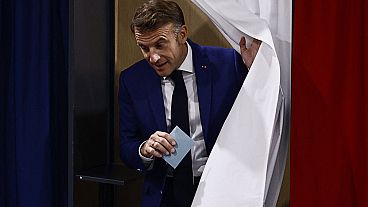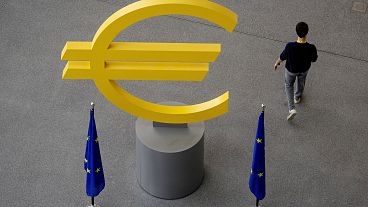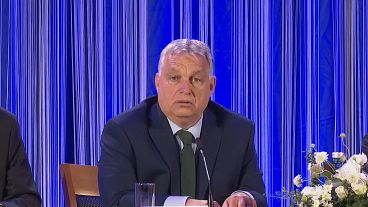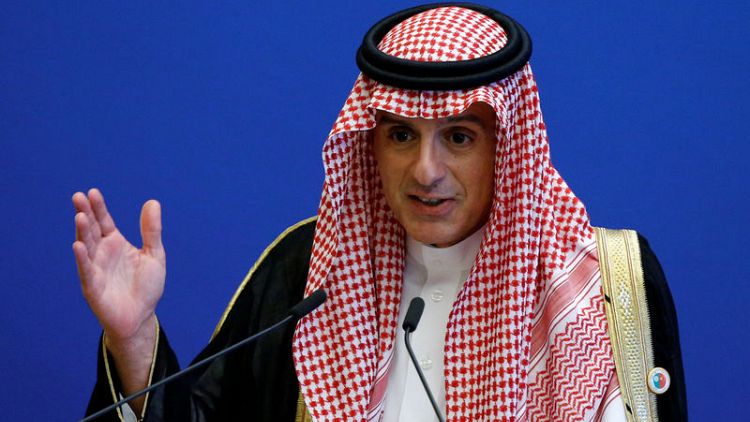By John Irish
UNITED NATIONS (Reuters) - Saudi Arabia's foreign minister asked Canada to apologise for demanding the release of Saudi women's rights activists and stop treating the kingdom as "a banana republic" if it wanted to resolve a diplomatic dispute between the two countries.
In August, Saudi Arabia froze new trade with Canada, blocked grain imports, expelled Canada's ambassador and ordered all Saudi students home after Ottawa called for the release of activists detained for urging more rights for women.
Canadian Foreign Minister Chrystia Freeland said on Tuesday she hoped to meet with her Saudi counterpart Adel al-Jubeir this week on the sidelines of the United Nations General Assembly.
"It is outrageous from our perspective that a country will sit there and lecture us and make demands ... We demand the immediate release and independence of Quebec, granting of equal rights to Canadian Indians. What on earth are you talking about?," al-Jubeir said at the Council on Foreign Relations in New York on Wednesday night.
"You can criticise us about human rights, women's rights ... others do and that's your right. You can sit down and talk about it, but demand the immediate release? What are we a banana republic? Would any country accept it? No! We don't," al-Jubeir said.
The dispute arose from Canada's criticism over the arrests, including that of prominent women's rights campaigner Samar Badawi. Her brother Raif Badawi, a prominent blogger, is serving a 10-year sentence and has been publicly flogged for expressing dissenting opinions online. His wife and children live in Canada and are Canadian citizens.
A number of women's rights activists, who campaigned for the right to drive and an end to the kingdom's male guardianship system, have been targeted in a government crackdown in recent months, human rights' groups say.
"We don't want to be a political football in Canada's domestic politics. Find another ball to play with. It's very easy to fix. Apologise and say you made a mistake," al-Jubeir said.
Freeland said on Tuesday that Ottawa would not be changing its fundamental position.
"Canada will always stand up for human rights ... we feel a particular obligation to women who are fighting for their rights around the world," she said. "And we feel a particular obligation to people who have a personal connection to Canada."
Germany and Saudi Arabia agreed earlier this week to end a diplomatic dispute. The spat started last November when Germany's foreign minister at the time, Sigmar Gabriel, condemned "adventurism" in the Middle East, comments seen as an attack on increasingly assertive Saudi policies, notably in Yemen.
(Reporting by John Irish; editing by Grant McCool)












